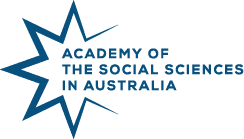
 The Royal Society of NSW is delighted to learn of the recognition of four of its Fellows as new Fellows of the Academy of Social Sciences in Australia, elected in November 2021. They are Professor Bernard Balleine FRSN FASSA of UNSW (Sydney), Professor Catherine Coleborne FRSN FASSA of the University of Newcastle, Emeritus Professor Andrew Jakubowicz FRSN FASSA of the University of Technology Sydney, and Professor Frans Verstraten FRSN FASSA of the University of Sydney.
The Royal Society of NSW is delighted to learn of the recognition of four of its Fellows as new Fellows of the Academy of Social Sciences in Australia, elected in November 2021. They are Professor Bernard Balleine FRSN FASSA of UNSW (Sydney), Professor Catherine Coleborne FRSN FASSA of the University of Newcastle, Emeritus Professor Andrew Jakubowicz FRSN FASSA of the University of Technology Sydney, and Professor Frans Verstraten FRSN FASSA of the University of Sydney.
 Professor Bernard Balleine is a psychologist, behavioural neuroscientist, and head of one of the leading laboratories in the world in the study of the neural bases of decision-making. He and his team have discovered important features of these forms of action control at various levels of analysis, from the psychological and neural systems mediating specific functional capacities to the cellular circuits and intracellular signalling processes involved in specific neuronal plasticity and the cellular changes that support them. His laboratory was the first to reveal the importance of the cortical-basal ganglia network, involving medial prefrontal cortex and its connections with the dorsomedial striatum, in the acquisition and updating of goal-directed actions. The approach and procedures pioneered by him have had a profound influence within psychology and neuroscience as well as on computational theories of adaptive behaviour, research programs involving neuroimaging in humans, and models of human psychopathology and addiction.
Professor Bernard Balleine is a psychologist, behavioural neuroscientist, and head of one of the leading laboratories in the world in the study of the neural bases of decision-making. He and his team have discovered important features of these forms of action control at various levels of analysis, from the psychological and neural systems mediating specific functional capacities to the cellular circuits and intracellular signalling processes involved in specific neuronal plasticity and the cellular changes that support them. His laboratory was the first to reveal the importance of the cortical-basal ganglia network, involving medial prefrontal cortex and its connections with the dorsomedial striatum, in the acquisition and updating of goal-directed actions. The approach and procedures pioneered by him have had a profound influence within psychology and neuroscience as well as on computational theories of adaptive behaviour, research programs involving neuroimaging in humans, and models of human psychopathology and addiction.
 Professor Catharine Coleborne is Australia’s leading historian of psychiatry whose work has transformed our understanding of the past and present of mental illness and the asylum. Her research has been consistent in creating new knowledge through histories of mental health and institutions, including advancing fresh ideas about approaches to the study of mental breakdown in the past and present. Her scholarship has focused on the institutional populations of nineteenth-century psychiatric hospitals in Australia and New Zealand and has touched on the themes of law, medicine, welfare, migration, mobility, and colonialism. These institutions were shaped by the processes of colonialism and reflected colonial society’s anxieties and preoccupations. Over time, her scholarship has been drawn increasingly into more contemporary projects about mental health, such as museums, collections and exhibitions; or examining lived experiences of ‘madness’ in a critical disability studies framework.
Professor Catharine Coleborne is Australia’s leading historian of psychiatry whose work has transformed our understanding of the past and present of mental illness and the asylum. Her research has been consistent in creating new knowledge through histories of mental health and institutions, including advancing fresh ideas about approaches to the study of mental breakdown in the past and present. Her scholarship has focused on the institutional populations of nineteenth-century psychiatric hospitals in Australia and New Zealand and has touched on the themes of law, medicine, welfare, migration, mobility, and colonialism. These institutions were shaped by the processes of colonialism and reflected colonial society’s anxieties and preoccupations. Over time, her scholarship has been drawn increasingly into more contemporary projects about mental health, such as museums, collections and exhibitions; or examining lived experiences of ‘madness’ in a critical disability studies framework.
 Professor Andrew Jakubowicz is recognised nationally and internationally as a leading scholar on multiculturalism and associated social issues, while being an innovator in the use of non-traditional media to communicate the insights and findings of sociological research. His research has focused on the relationships between power and culture, in particular, between key social institutions (including the state, education, media) and culturally diverse populations in Australia. As a public intellectual, he has been committed to communicating sociology (through online blogs, television documentaries, submissions to parliamentary inquiries, participation in government advisory bodies) as well as providing sustained public leadership and advocacy roles, contributing to policy debates and proposals for legislative innovation.
Professor Andrew Jakubowicz is recognised nationally and internationally as a leading scholar on multiculturalism and associated social issues, while being an innovator in the use of non-traditional media to communicate the insights and findings of sociological research. His research has focused on the relationships between power and culture, in particular, between key social institutions (including the state, education, media) and culturally diverse populations in Australia. As a public intellectual, he has been committed to communicating sociology (through online blogs, television documentaries, submissions to parliamentary inquiries, participation in government advisory bodies) as well as providing sustained public leadership and advocacy roles, contributing to policy debates and proposals for legislative innovation.
 Professor Frans Verstraten is an experimental psychologist who is widely recognised for the highly successful integration of psychological research into a multi-disciplinary enterprise with fields of medicine. Over the past two decades, Professor Verstraten has also contributed significantly to making psychology more accessible to a general audience, through participation in a nationally-broadcast television series and the writing of popular books. In recent years, his interests have extended to the applied aspects of experimental psychology, including clinical applications.
Professor Frans Verstraten is an experimental psychologist who is widely recognised for the highly successful integration of psychological research into a multi-disciplinary enterprise with fields of medicine. Over the past two decades, Professor Verstraten has also contributed significantly to making psychology more accessible to a general audience, through participation in a nationally-broadcast television series and the writing of popular books. In recent years, his interests have extended to the applied aspects of experimental psychology, including clinical applications.
The Council of the Royal Society of NSW extends its warmest congratulations to Professors Balleine, Coleborne, Jakubowicz, and Verstraten on this recognition by the Social Sciences Academy for their achievements.